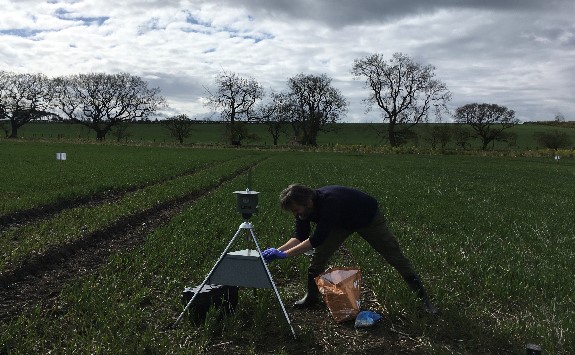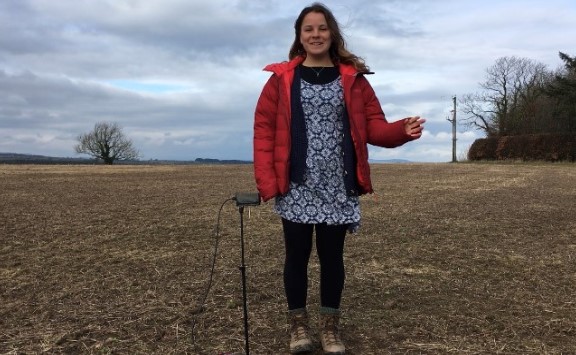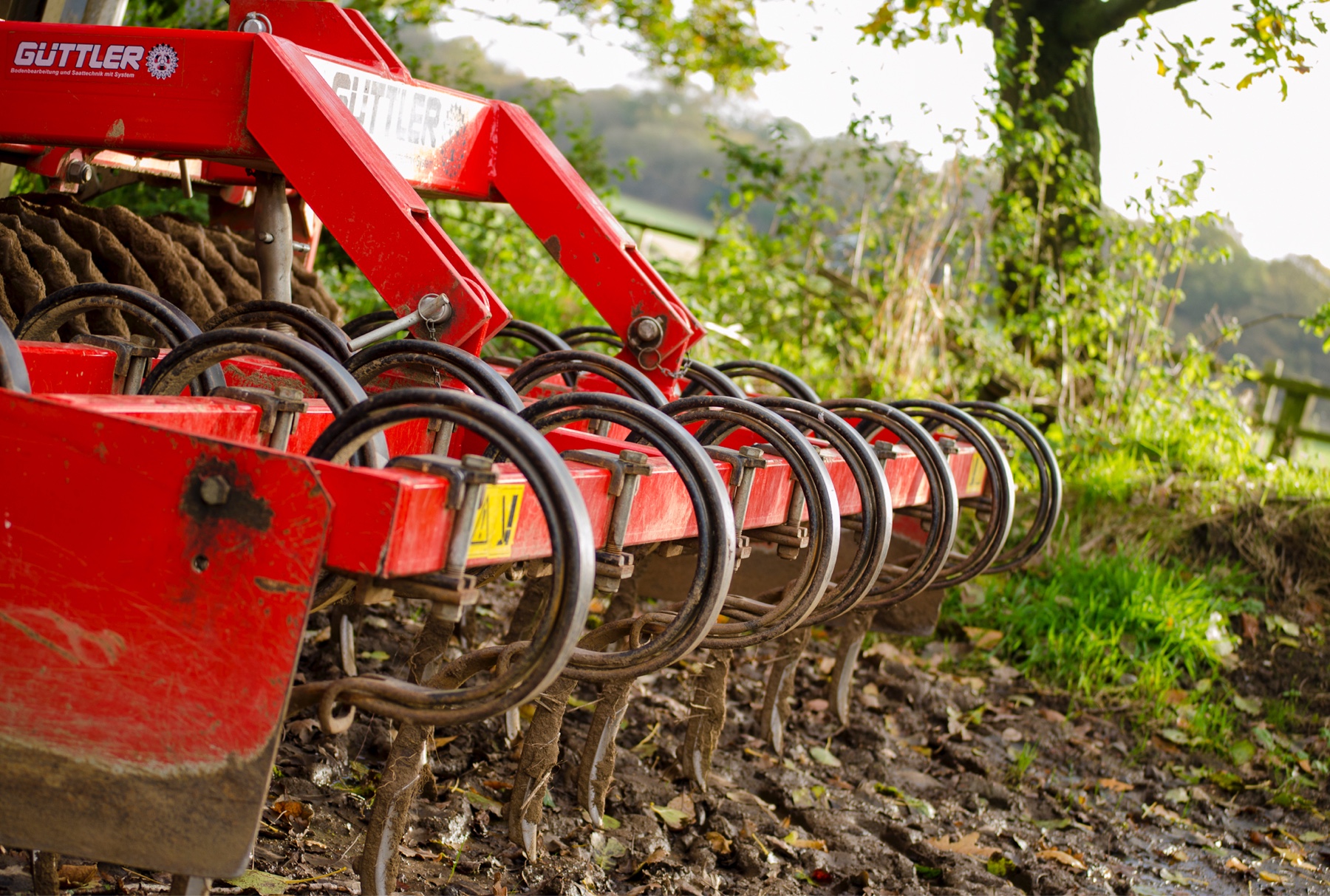Precision Agriculture and Smart Technologies
Smart technologies, driven by automation and artificial intelligence, allow improved decision making on farms. Systems level management, to maximise efficiency, reduce inputs and drive sustainable production, can revolutionise the agri-food sector.
Our Research
Precision agriculture and smart technologies encompasses many of the technology concepts that help farmers manage food production more efficiently. From the use of GPS located farm machinery, through to the use of aerial or satellite imagery and spectroscopy and the automation of task using robotics, technology has the potential to deliver efficiency savings on farms. At Newcastle we have a research focus on precision approaches to integrated pest management (Boonham, George and Prashar), resistance management (Edwards), crop phenotyping (Prashar), robotics (George). The overall aim of the research is to improve production by using sensors/diagnostic approaches to measure key parameters that trigger changes in crop management.
This theme also encompasses new production systems such as vertical farming which are conceved from the perspective of automated, smart technologies. Highly intensive, automated systems that can be used to grow food closer to the point of consumption, improving nutritional quality and choice of products for the consumer, reducing transport costs and providing control to growers for year around production. Our research focuses on disease control (Boonham and Prashar), substrates and production (George and Lopez-Capel) and nutrition and consumer preference (Hill).
Data enabled vertical farming with minimal waste and emissions, and maximum efficiency and crop nutrition
Topic: InFarm is Europe’s largest vertical farming company and seeks to reduces losses in saleable produce whilst reducing transport costs, water use and fertiliser use.
The project has two objectives, the first to use the detection of VOCs and spectral/thermal imaging to better manage production and improve early disease detection/management. The second to explore the nutritional benefits and consumer acceptability of an increased range of crops grown in vertical farms.
- Funder: Innovate UK
- Newcastle partners: Neil Boonham, Ankush Prashar, Tom Hill, Julian Bello-Rodriguez, Dan Armstrong, Adam Clark, Avinash Agarwal
- Collaborators: InFarm, Roboscientific, Marks and Spencers
Summary:
InFarms vertical farming system is heavily data driven and intensively automated with the aim of reducing inputs and improving product quality and reducing product losses. As a result of the automation of the system, further data streams can be incorporated into the growing protocols to improve the efficiency of production. This product will explore the use of VOC detection using novel sensors (Roboscientific) for early disease detection, identifying problems before they become visible and enabling responsive management action to be taken. In addition, we will explore the use of spectral/thermal imaging to detect plant stress associated with disease and other abiotic factor, enabling real-time adaptation of growing conditions to optimise the crop production.
Vertical farming has the potential to grow plants closer to consumers, delivering the most nutritionally dense produce possible. Newcastle University (Hill) will lead on exploring how consumers respond to plants grown in this way and deliver a better understanding how growing conditions impact the nutritional quality of produce grown in vertical farms.
Related modules: ACE3909, ACE8108
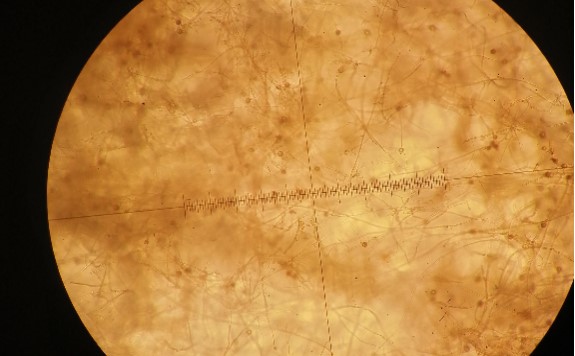
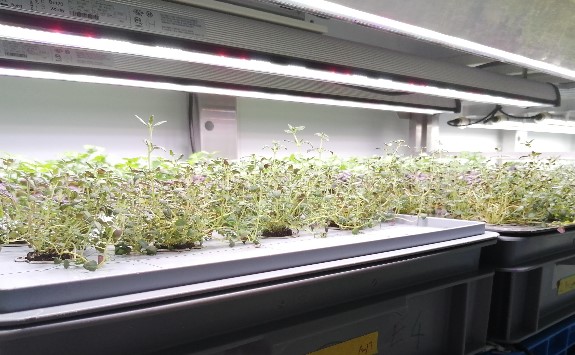
SprayBot: Combined imaging, spore sensing and robotic application platform, to improve the precision application of fungicides and biopesticides
Topic: The project seeks to better control fungal pathogens by identifying where and when pathogens are present in-crop and use robotic application of bio-fungicides to control them.
- Funder: Innovate UK
- Project collaborators: Dave George, Neil Boonham
- External partners: CHAP, Small Robot Company, Fotenix
Summary:
Plant protection products (PPPs), or pesticides, have driven crop productivity and agricultural income since their introduction in the 1930s, but are under mounting pressure due to withdrawal/regulation of active substances (linked to human/environmental safety concerns), registration costs, increasing fungicide/insecticide resistance and shifting consumer/supply-chain and policy demands (e.g. dietary change, Defra's 25yr Environmental Plan, ELMS). Legislative change, including the EU's Sustainable Use Directive, now mandates an Integrated Pest Management (IPM) approach where PPP use must be carefully considered.
To respond to these challenges quickly requires improved targeting and use of PPPs, applying products only when and where needed across the UK's 3.9M Ha of arable land (which represents our main market opportunity), mitigating against disease resistance and safeguarding consumers/environments from unnecessary residues. The project will explore the integration of spectral data (Fotenix) with data on pathogen presence (Newcastle) and crop monitor pro (CHAP) to identify spatially and temporally the risk of crop infection, integrated with robotic application (Small Robot Company) with the aim of reducing costs, increasing efficacy and reducing environmental impact of disease control.
Links to modules: ACE3909, ACE8108
Targeting biological control applications using automated spore sampling and disease forecasting
Topic: Biopesticides are the fastest growing sector of crop-protection (300% since 2008 and worth £6 billion globally). The biggest, yet largely untapped market is arable crops where barriers include environmental variability, optimising timing of applications and cost. This project will explore automated air sampling linked to decision support systems to improve timing of application.
- Funder: IAFRI
- Newcastle collaborators: Neil Boonham, Dave George, Lucy Mallard
- External partners: Judith Turner (Fera Science Ltd)
Summary:
Use of conventional crop protection products is under increasing pressure following withdrawal of actives due to regulation (linked to human and environmental safety concerns) and resistance (increasingly prevalent for most available classes of pesticide). This has driven significant growth in the biopesticide market (grown 300% between 2008-2018 and currently worth £6billion globally) including significant numbers of acquisitions of biopesticide companies by large agrochemical companies. Despite the investment, biopesticides are not widely used in the arable sector, where the biggest benefits in terms of (i) reduction in the use of synthetic chemistry, (ii) increased sales due to area of crop being managed and (iii) the potential for integrated crop management approaches to prolong the life of conventional crop protection products would be realised.
The aims of the project are to explore:
- Can optimising the timing of application of biopesticides based on pathogen ingress improve efficacy of disease control
- Can forecasting techniques be used to identify optimal conditions for biopesticide activity
- Does disease forecasting enhance the implementation of IPM (integration of conventional and biological products) approaches to disease control, enabling targeting of the most effective products at the highest risk periods.
Module links: ACE3909, ACE8108
